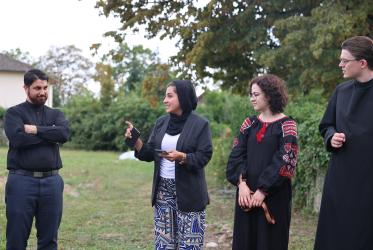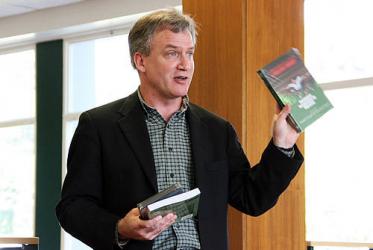Displaying 1 - 12 of 12
11 January 2024
A faith-based, holistic approach to HIV and AIDS-care
13 March 2019
Faith and HIV treatment go hand in hand
06 March 2019
Turning mercy and compassion into action
04 March 2019
On the journey to HIV – bridging gaps, debunking myths
21 February 2019
Media invite: Global collaboration on migrants, refugees and HIV
19 February 2019
Pope Francis at the World Council of Churches
31 May 2018
Seminar explores how populist rhetoric leads to racism
07 September 2017
After Busan: A pilgrimage of justice and peace
29 January 2014
Migration and theological method
09 March 2011











